Medical Education Research Grant — Recipients
2023
Elif Bilgic, PhD
Defining the Key Abilities Required to Perform in Challenging Pediatrics Procedures
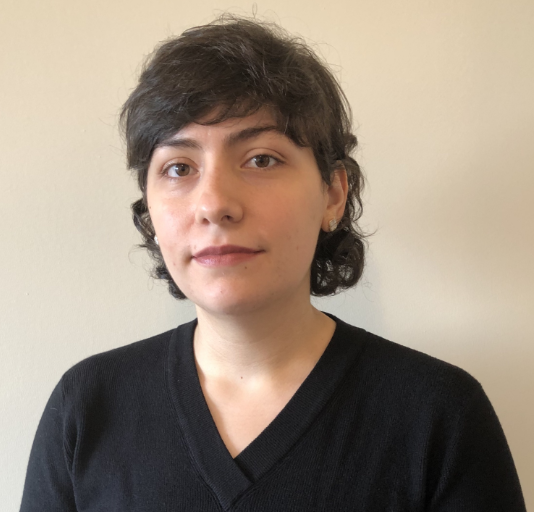
Elif Bilgic, PhD
Assistant Professor, Department of Pediatrics, McMaster University
Education Scientist, McMaster Education Research, Innovation and Theory (MERIT) Program, McMaster University
Procedural abilities are an important part of patient care in pediatrics, and over the years, with changes in epidemiology of illnesses, technology available, procedural techniques, and practice routines of pediatricians, there continue to be changes in the needs of trainees when it comes to procedural abilities. Additionally, certain procedural abilities are often challenging for residents to gain competence, with some reasons being limited exposure in the clinical setting and a large range in patient characteristics in the pediatrics patient population. Therefore, through our interpretive qualitative research study, we will explore what makes a procedure challenging, and understand current and future training and assessment opportunities to support procedural training. Ultimately, our results will serve as the basis to establish training curricula and assessment strategies for key abilities within pediatrics procedures that trainees are finding challenging to gain competence and fulfill assessment requirements.
Kathy Boutis, MD, MSc
Performance-based Competency Standard Setting: Balancing Performance Expectations with Patient Safety and Learner Experience
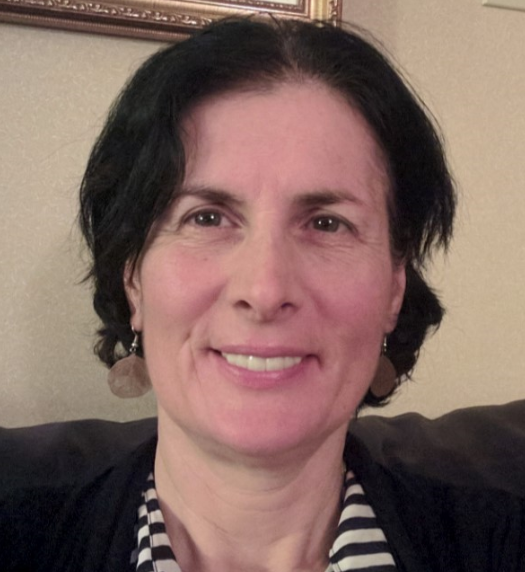
Kathy Boutis, MD, MSc
Staff Emergency Physician, Senior Associate Scientist, Hospital for Sick Children
Professor of Pediatrics, University of Toronto
There is often little or no data on patient-safety and/or learner consequences to inform the competency-setting standard process. As a result, in this research, we will examine patient-safety consequences by conducting a three-arm randomized control design to determine if there a difference in clinically important diagnostic errors if the performance standard is set at 75% accuracy, sensitivity, and specificity (Group 1) versus 85% (Group 2) versus 95% (Group 3). We will also examine learner consequences by comparing each of the groups with respect to feasibility of the intervention by measuring the proportion of participants who achieved the performance standard and acceptability by implementing a questionnaire post-completion.
Eric Chan, MD, MSc, FRCPC
A Realist Evaluation of Suicide Intervention Training in Residency
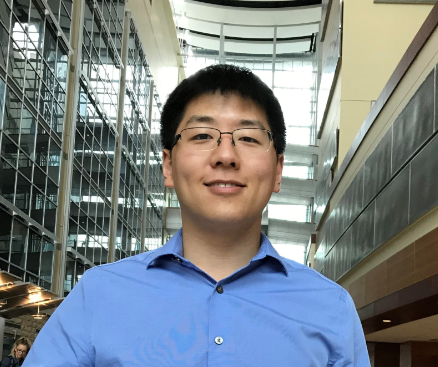
Eric Chan, MD, MSc, FRCPC
Clinical Assistant Professor, Department of Psychiatry, University of Calgary
Member, Mathison Centre for Mental Health Research & Education - Hotchkiss Brain Institute, University of Calgary
Despite the essential role of family physicians, pediatricians and emergency physicians in suicide prevention, many physicians in these specialties feel that deficits in suicide prevention training negatively impact their ability to support patients at-risk. We will be using a realist inquiry approach to examine existing suicide intervention training and develop a program theory describing what suicide intervention training approaches work, for different populations and settings. To understand the state of existing suicide intervention training for residents in generalist programs, we will conduct a realist scoping review of the literature and perform an environmental scan of suicide intervention training within Canadian family medicine, pediatrics, and emergency medicine residency programs. We will then interview residents and practicing physicians in these fields, as well as patients with lived experience of suicidality and their family members, to understand what is most effective in preparing physicians to support individuals at-risk of suicide.
Susan Humphrey-Murto, MD, MEd, FRCPC
Exploring Competency Committee Membership Diversity and Procedures in Residency-Training Programs in Canada
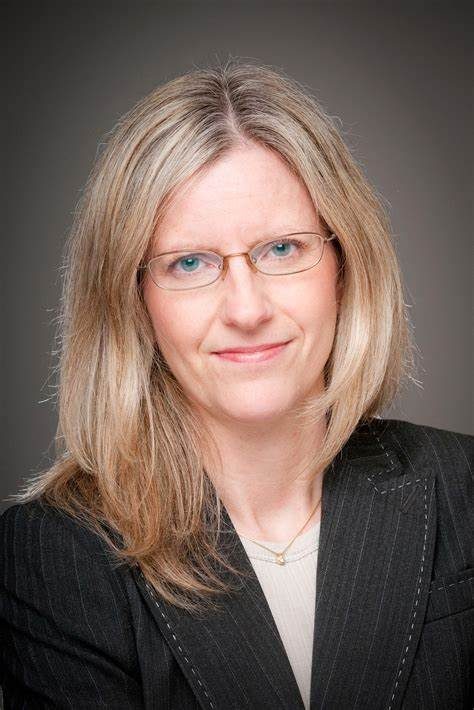
Susan Humphrey-Murto, MD, MEd, FRCPC
Associate Professor, Department of Medicine, Division of Rheumatology, University of Ottawa
Fellowship Director - Medical Education Research, Department of Innovation in Medical Education
Competency committees (CC) are central to competency based medical education. These groups collate and interpret assessment data about each resident to inform decisions about progression and entrustment. The group decision-making literature suggests that heterogeneous groups may outperform homogeneous groups. Member diversity has taken on more relevance with consideration of equity diversity and inclusion (EDI) in medical trainees. However, it is unclear if this is mirrored by consideration of diversity in assessment strategies. The purpose of this project is to explore how CC members perceive that CC member diversity in Canadian residency training programs contributes to decision making and what procedures influence participation and decisions rendered.
Concerns have been voiced that our current assessment practices in medicine are not equitable and require our attention. This project aims to highlight the current state of CC membership diversity and how processes and procedures may promote or inhibit defensible decision making.
Marisa Louridas MD, PhD, FRCSC
Coaching to improve mid-career surgeon wellness
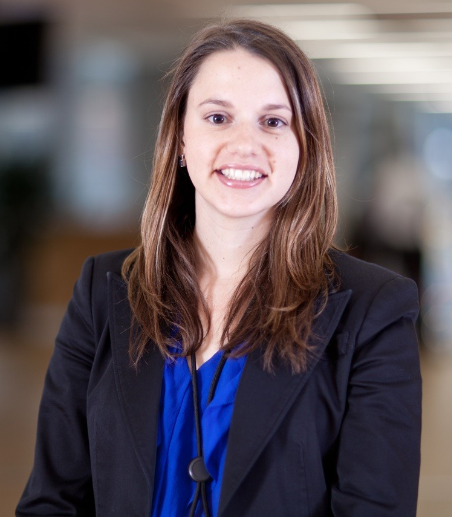
Marisa Louridas MD, PhD, FRCSC
Colorectal Surgeon, St. Michael’s Hospital
Assistant Professor of Surgery, University of Toronto
Mid-career surgeons are at an increased risk of developing burnout. Surgeons at this career phase often contend with increasing workloads as they begin to take on leadership and administrative roles in addition to their heavy clinical practices. Supporting mid-career surgeons as they navigate expansion of their roles during this career phase is notable gap within our system. Coaching has the potential to bridge this gap and enhance faculty wellness, patient outcomes, and connectivity to the profession. Therefore, we endeavor to explore whether working with an executive coach can enhance wellness in mid-career surgeons. Findings of this study may inform faculty development centered on enhancing physician wellness and strategies to mitigate burnout.
Catharine Munn, MSc, MD, FRCPC
The Co-WRaP Study: Co-Creating Solutions to Enhance the Well-being of Residents and Partners
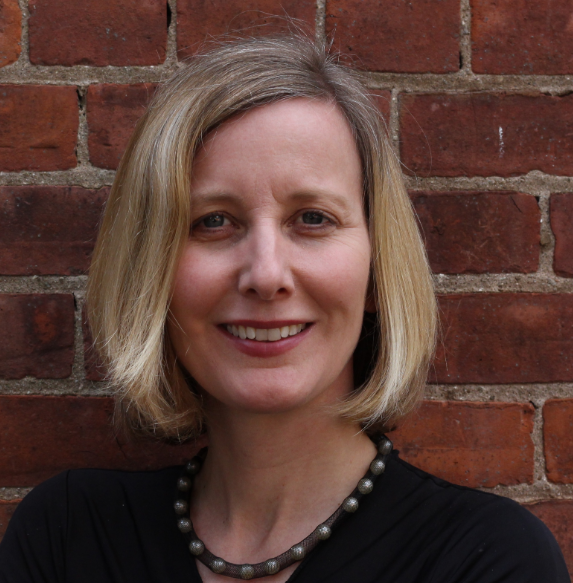
Catharine Munn, MSc, MD, FRCPC
Associate Clinical Professor, Department of Psychiatry and Behavioural Neurosciences, McMaster University
Assistant Dean, Resident Affairs, Postgraduate Medical Education (PGME), McMaster University
Postgraduate medical training can be an exciting, engaging, and rewarding phase of academic and career development, and is associated with burnout and other negative effects on well-being, mental health, and personal relationships. Residents’ relationships and the experiences of intimate partners have received little research attention, despite their potential role in preventing and responding to burnout and improving resident well-being. Physicians who are satisfied and well-supported provide better patient care.
With the Co-WRaP study, having interviewed residents and partners, we will clearly describe the impact of training on the well-being and relationships of residents and their partners. Additionally, we will engage residents and partners by co-creating strategies to mitigate negative impacts and better support them at the individual, couple, and systemic levels. These approaches can directly inform future quality improvement and research initiatives in postgraduate medicine to improve the residency experience for residents and partners, by supporting their well-being and relationships.
2022
Stacie Carey, M.A., PhD Candidate
Lost in Knowledge Translation? Mapping self‐, co‐, and socially-shared regulation of learning in initial training and in later efforts toward implementing practice change.
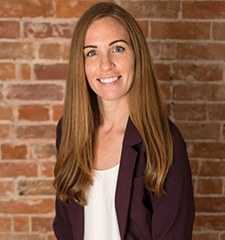
Stacie Carey, M.A., PhD Candidate
The Wilson Centre & Institute for Health Policy, Management and Evaluation, University of Toronto
Training Lead, Centre for Addiction and Mental Health
With ever-emerging evidence, health care practice standards constantly evolve. In turn, professionals must continually learn to change their practice, a process regularly referred to as knowledge translation (KT). Implementers of KT interventions often assume health care professionals ”transfer” learning from the educational to the practice setting; however, education research suggests “transfer” can be difficult to achieve. Drawing from education sciences and adopting a constructivist lens, we will investigate the ”transfer assumption of KT” by examining individual, co-regulated and socially-shared learning processes amongst health professionals. We will study such interactions during the education component of a KT intervention and, subsequently, as professionals implement changes in their workplace. Anticipated project outcomes include: describing how professionals learn together across both settings, identifying relevant features of the practice setting that support and impede KT, identifying points of intervention for future research and program implementations and offering directions for optimizing the design of continuing professional development programs.
Heather Lochnan, MD, FRCPC
Peer Observation of Teaching: Multiple-Site Case Study Guided by Diffusion of Innovations Theory
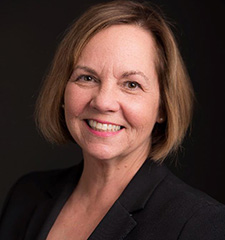
Heather Lochnan, MD, FRCPC
Professor of Medicine, Department of Medicine, and Head Endocrinology and Metabolism The Ottawa Hospital
Assistant Dean CPD and Education Programming, Faculty of Medicine, University of Ottawa
Peer Observation of Teaching (POT) is an important method to provide coaching and feedback about an individual’s teaching skills in a formative context. Current literature demonstrates that many challenges that exist limiting the ability to sustain a robust peer observation program. This project aims to support higher education institutions in their understanding of the existing POT practices at Canadian universities as well as how to promote them.
Using a comparative multi-site case study design, we will investigate the use of the POT methods in a variety of settings to develop our understanding of POT best practices in Faculty Development programs. Results can inform the design and operationalization of POT implementation strategies in medicine, including its implementation at the systems level. Diffusion of innovation theory will contribute to understanding the process and rates of adoption and will contribute to the development of recommendations for POT programs.
Amin Madani, MD, PhD, FRCSC, FACS
Artificial Intelligence for Surgical Coaching: A Randomized-Controlled Trial of Surgical Trainees

Amin Madani, MD, PhD, FRCSC, FACS
Staff surgeon (Endocrine and Acute Care Surgery) and Director, Surgical Artificial Intelligence Research Academy, University Health Network
Assistant professor, Department of Surgery, University of Toronto
The contributions of this project are expected to be significant because they will provide surgeons and surgeons-in-training with new opportunities to obtain support and feedback to improve their individual performance in the operating room as well as decrease surgical complications during cholecystectomy and the resultant morbidity, mortality, decreased quality of life and health care costs. From an educational perspective, artificial intelligence (AI)-guided coaching helps scale surgical expertise to reach many end-users simultaneously, overcoming geographic barriers, and without the need for faculty availability. This is imperative for not only the success of Competency-Based Medical Education training programs, but also for Continuing Professional Development for surgeons in practice. While this project focuses on the impact of automated AI-based analysis of surgical performance for educational purposes, we expect it to lay the groundwork for intraoperative, automated, real-time decision-support (e.g., to provide guidance, navigation, or warning signals for high-risk behaviors).
Maria Athina (Tina) Martimianakis, MA, MEd, PhD
The Role of Collaborative Boundary Work in Clinical Reasoning: Interprofessional Collaboration and Boundary Negotiation Between Medicine and Pharmacy
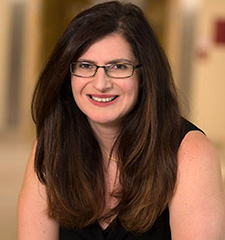
Maria Athina (Tina) Martimianakis, MA, MEd, PhD
Professor and Director of Medical Education Scholarship, Department of Paediatrics, University of Toronto
Scientist and Associate Director, Wilson Centre for Research in Education, UHN and University of Toronto
Professional learners must develop the expertise to integrate knowledge across places, individuals and professional groups to provide the best possible care for diverse patients. Collaboration is a core capability of this type of expertise. Health care organizations strongly promote collaboration. However, this cultural investment has not solved a crucial problem — how to best train clinical learners to appreciate the role of a clinical team in accessing and using the cognitive resources available in the system. We apply the concepts of adaptive expertise, distributed cognition and boundary work to explore clinical reasoning processes in a simulated context. We explore how learners justify collaborating or not collaborating with other members of the team when making therapeutic management decisions and how these decisions relate to their conceptual and procedural appreciation of the value of different sources of pharmacological knowledge. Findings from this research will support educational interventions for postgraduate training.
Taryn Taylor, MD, PhD, FRCSC
(Re)learning how to listen and (re)defining speaking up: Using simulation to explore how interprofessional teams navigate hierarchy.
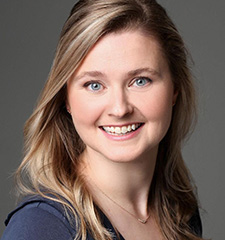
Taryn Taylor, MD, PhD, FRCSC
Assistant Professor, Department of Obstetrics & Gynaecology, Western University
Scientist, Centre for Education Research & Innovation, Schulich School of Medicine & Dentistry, Western University
This work is important to medical education because it explores how simulation can support team leaders in learning how to listen and whether teams perceive any role for less explicit forms of speaking up. Existing simulation research that seeks to solve the problem of silence within interprofessional teams maintains two key assumptions that are impeding progress. First, it assumes that the problem can be solved by teaching subordinate team members to be brave and speak up, despite interpersonal risk. Second, it assumes that less explicit forms of speaking up are inherently ineffective. Using a simulation-primed inquiry approach, this qualitative study will explore listening down and speaking up in the context of interprofessional health care teams. Insights from this study will inform a faculty development program to enhance listening down behaviours and further team training, more broadly, to optimize both explicit and less explicit speaking up practices beyond simulation.
Recai Yilmaz, MD
Testing a Real-Time Intelligent Coaching System in Comparison to Expert Instruction in Surgical Technical Skills Training: A Randomized Controlled Trial
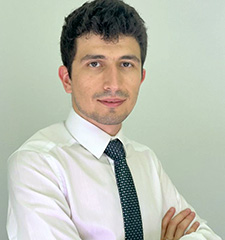
Recai Yilmaz, MD
Doctoral student, Department of Experimental Surgery, Faculty of Medicine and Health Sciences, McGill University
Competency-based surgical education requires advanced systems for objective and comprehensive assessment of surgical technical skills. Virtual reality simulations equipped with artificial intelligence systems provide a quantitative, precise assessment of surgical skills while trainees practise their skills in risk-free, realistic patient cases. At our lab (http://neurosim.mcgill.ca/), an advanced multi-algorithm intelligent system for continuous assessment of surgical bimanual performance, real-time feedback and error detection was developed. This system monitors surgical performance, provides auditory real-time feedback on six features during the performance and shows the error moment videos posthoc to the trainee alongside expert level demonstrations relating each error. Our work will test the independent use of this real-time intelligent system in the mastering of surgical bimanual skills to expert level in simulated brain tumour resections by comparing its efficacy with learning in-person with a surgical instructor. Such intelligent systems may become an important part of future competency-based surgical curricula.
2021
Deena Hamza, PhD
When are we done? Exploring the longevity of CBME implementation

Deena Hamza, PhD
Research & Evaluation Lead, Postgraduate Medical Education, Faculty of Medicine & Dentistry, University of Alberta, Canada
This work is important because the ways in which we introduce change and evaluate the outcomes and impact of educational innovation may limit our thinking about the trajectory and longevity of change initiatives. Decisions that are made based on cross-sections or snapshots of evidence in time may contribute to, and perpetuate, the “carousel of change,” which can be demotivating for those on the frontlines, as well as challenge fiscal responsibility. The project, “When are we done? Exploring the longevity of competency-based medical education (CBME) implementation” examines normalization, or how the practices and activities of educational innovation are embedded and integrated (or not) in training programs across Canada. Through this project, we will gather much needed evidence about how teams implement CBME, while advancing our strategies to uncover the elusive bridge connecting innovation to the aspirational goals of change.
Lisa Shepherd, MD, FRCPC, MHPE
Resident, responsibility and error: How a resident learns to navigate the intersection
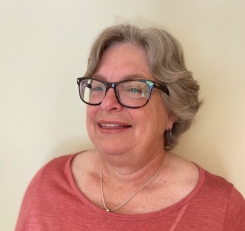
Lisa Shepherd, MD, FRCPC, MHPE
Professor, Department of Medicine, Division of Emergency Medicine, Western University
Translational Education Researcher, Centre for Education Research and Innovation, Western University
Error is inevitable in medicine, given its inherent uncertainty, complexity, and in-the-moment decision making. The patient safety movement strives to increase discussion and improve responses of health care professionals to medical errors, with a focus on a systems-based approach that emphasizes the multifactorial nature of errors and deemphasizes individual blame. But this approach presents an enigma for physicians. The most responsible physician must disclose these events to the patient while providing ongoing care, often amidst concerns about negative professional judgement and future legal action. This is not a binary choice. Both are possible, and in fact, necessary for optimal patient care.
Little is known about how residents learn to assume responsibility after errors and how they navigate the complex intersection of individual and system influences. A better understanding of this process may help to bolster residency curricula in patient safety and establish a culture of safety within residency training programs.
Melissa Kimber, PhD, MSW, BA/BSW, RSW
Evaluating an Educational Intervention for Improving Residents' Recognition and Response to Child Maltreatment – A Mixed Method Acceptability and Feasibility Study with a Pilot Randomized Trial
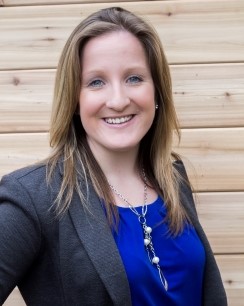
Melissa Kimber, PhD, MSW, BA/BSW, RSW
Assistant Professor & Core Member Offord Centre for Child Studies Department of Psychiatry and Behavioural Neurosciences, McMaster University
This work is important to medical education because physicians have an important role in the prevention of child maltreatment and its negative impacts. Increasing evidence indicates that clinicians require more training in this area and the optimal educational approach for preparing physicians to safely recognize and respond to suspected or disclosed child maltreatment remains unclear. The Violence, Evidence, Guidance, Action (VEGA) Project is a novel educational intervention that has the potential to improve physicians’ knowledge and skills related to child maltreatment. VEGA can be completed as a self-directed educational activity (i.e., self-directed VEGA) or as a virtual or face-to-face workshop (i.e., facilitator-led VEGA). In this study, we will collect qualitative and quantitative data to determine the acceptability and feasibility of conducting a randomized controlled trial to evaluate the impact of VEGA’s educational approaches as adjuncts to standard residency education for improving postgraduate learners’ knowledge and skill related to recognizing and responding to child maltreatment in the clinical encounter.
Allison Crawford, MD, FRCPC, PhD
Disorienting Dilemmas in Virtual Care – Collaboration for transformation in virtual care
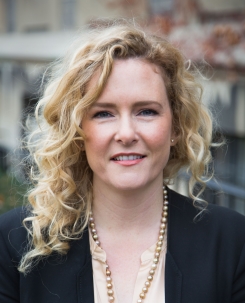
Allison Crawford, MD, FRCPC, PhD
Director, Virtual Care and Chief Medical Officer of the Canada Suicide Prevention Service, Centre for Addiction and Mental Health
Associate Professor, Department of Psychiatry, University of Toronto
As our health care increasingly transitions to virtual environments, this work is important to medical education so that we can keep pace with the competencies residents and faculty need to achieve in order to provide compassionate care. Using a frame of transformative learning, we will have participants across the learning continuum reflect upon their disorienting dilemmas in virtual care. It is also important that we include patient partners in all aspects of this work so that we consider their experiences, preferences and needs in virtual care, and so that we can draw on their knowledge and strengths.
Sarah Blissett, MD, FRCPC, MHPE
More than matching: How do Trainees Select tasks to Maximize Learning in Postgraduate Medical Education
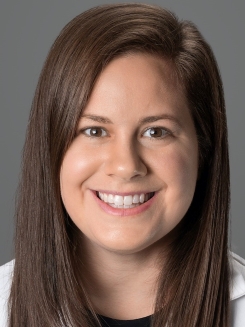
Sarah Blissett, MD, FRCPC, MHPE
Assistant Professor, Department of Medicine (Division of Cardiology), Western University
Researcher, Centre for Education Research and Innovation, Schulich School of Medicine and Dentistry, Western University
The goals of competency-based medical education (CBME) can only be fully realized if postgraduate medical trainees select clinical tasks (e.g. assessing a patient, performing a procedure) that maximize their learning. Although workplace learning environments provide opportunities to select authentic tasks that maximize learning, aspects of these environments may threaten selection of tasks that advance knowledge or skills. Educational theories do not address how trainees should select tasks within the complexities of workplace learning environments. The core role of task selection in CBME imposes urgency to close this gap. Through this national qualitative study, we anticipate identifying the goals trainees use, the trade-offs trainees balance and the factors trainees consider when selecting clinical tasks. These data will inform strategies to improve task selection that maximizes learning and fulfils the goals of CBME.
Anurag Saxena, MD, FRCPC, MEd, MBA, FCAP, CHE, CCPE
Exploring leadership developmental readiness on leader development, practice and effectiveness in postgraduate medical education
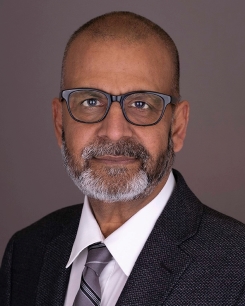
Anurag Saxena, MD, FRCPC, MEd, MBA, FCAP, CHE, CCPE
Professor, Department of Pathology and Laboratory Medicine, University of Saskatchewan / Saskatchewan Health Authority
Associate Dean, Postgraduate Medical Education, College of Medicine, University of Saskatchewan
Based upon evidence that effective leadership by physicians correlates with physician engagement and improved health care outcomes, there is ongoing extensive investment in physician leadership development. However, leadership education does not always translate into effective leadership; its impact is variable and in general, modest. The theory of leader developmental readiness (LDR), which includes motivation and ability to develop as a leader, proposes that leadership development is more effective in individuals with higher levels of ‘developmental readiness,’ as they are better able to reflect upon and make meaning of events, challenges and/or opportunities that increase the pace and depth at which leadership skills can be learned and utilized. This mixed methods study will explore individual and organizational factors that shape LDR and aim to understand the relationship between LDR, efficacy, leadership practice and effectiveness. The findings hopefully would improve the effectiveness of leadership development programs by utilizing LDR to individualize leadership development.
Catherine Yu, MD, FRCPC, MHSc
Role of mentorship in promoting wellness and inclusion among racialized women physicians in academic medicine – a qualitative study

Catherine Yu, MD, FRCPC, MHSc
Clinician Educator and Endocrinologist, Division of Endocrinology and Metabolism, Department of Medicine, St. Michael’s Hospital
Associate Professor, Dalla Lana School of Public Health, University of Toronto
Inequalities faced by women and racialized physicians can result in burnout and reduced job satisfaction. These inequalities occur at individual, institutional and societal levels. Mentorship is a vital aspect of career development for faculty in academic medicine and can be an intervention to target these disparities. However, the current state of mentorship in academic medicine may be a contributor to these disparities. The following experiences of women and racialized physicians will be explored: 1) general factors affecting wellness and inclusion, 2) the role and experiences of mentorship within wellness and inclusion and 3) needs and preferences for mentorship and a mentorship program promoting wellness and inclusion. This project will provide a portrait and synthesis of the current experiences of women and racialized physicians and create actionable recommendations to mitigate the impact of these inequalities with a focus on the role of mentorship and a mentorship program.
Allen Tran, MD, FRCPC, PGDip, Med
The missing perspective in learner handover: What do residents think?

Allen Tran, MD, FRCPC, PGDip, Med
Assistant Professor, Department of Medicine, Dalhousie University
Learner handover (LH) is the sharing of information regarding a learner’s progress between faculty supervisors. It is a controversial topic in medical education with numerous valid arguments for and against this practice. It can be a potential tool for building upon a learner’s specific needs, but there is a concern for biasing and self-fulfilling prophecies with its use. LH can also occur informally or formally. The literature contains perspectives on LH from educational administrative leaders and faculty supervisors. However, there is little data from postgraduate learners. This work will provide this important voice to the medical education literature. The data could then inform developing learner handover practices that are learner centric.
Gianni Lorello, MD, FRCPC, BSc, MSc (Med Ed), CIP
Trans(forming) the Medical Gaze: A Hermeneutic Phenomenology of Transgender Patients' Lived Experiences Accessing Transition-Related Surgery and Their Health Care Interactions
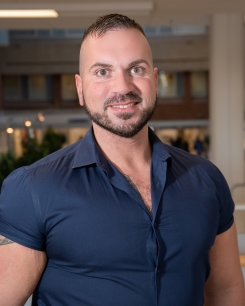
Gianni Lorello, MD, FRCPC, BSc, MSc (Med Ed), CIP
Staff Anesthesiologist, Department of Anesthesia and Pain Management, University Health Network – Toronto Western Hospital
The transgender population is one of the most socially-marginalized groups of people who experience discrimination in all spheres of life.1 Through lived negative experiences, transgender patients have articulated the need for sensitive and inclusive care and discussed the challenges associated with health care.2 Recent evidence demonstrates that gender-affirming medicine protocols are poorly understood by physicians that do not work in transgender-related settings3,4 as there are often educational gaps that lead to a lack of transgender-specific knowledge. These educational and knowledge gaps result in inequities.4
We seek to better understand transgender patients’ lived experiences accessing and navigating Transgender-Related Surgery at Women’s College Hospital through their interactions with health care professionals. The results will inform educational curricula, engaging health care workers in conversations that lead to transformative learningand ensure that this transformative learning spans across the health professions education continuum.
References
- Luvuno ZPB, Ncama B, McHunu G. Transgender population's experiences with regard to accessing reproductive health care in Kwazulu-Natal, South Africa: A qualitative study. Afr J Prim Health Care Fam Med 2019;11(1):e1-e9. DOI: 10.4102/phcfm.v11i1.1933.
- Hinrichs A, Link C, Seaquist L, Ehlinger P, Aldrin S, Pratt R. Transgender and Gender Nonconforming Patient Experiences at a Family Medicine Clinic. Acad Med 2018;93(1):76-81. DOI: 10.1097/ACM.0000000000001837.
- MacKinnon KR, Ross LE, Rojas Gualdron D, Ng SL. Teaching health professionals how to tailor gender-affirming medicine protocols: A design thinking project. Perspect Med Educ 2020;9(5):324-328. DOI: 10.1007/s40037-020-00581-5.
- MacKinnon KR, Ng SL, Grace D, Sicchia SR, Ross LE. Protocols as curriculum? Learning health advocacy skills by working with transgender patients in the context of gender-affirming medicine. Adv Health Sci Educ Theory Pract 2020;25(1):7-18. DOI: 10.1007/s10459-019-09899-0.
2020
Gisèle Bourgeois-Law, MD, MEd, FRCSC
Remediation as experience by practicing physicians
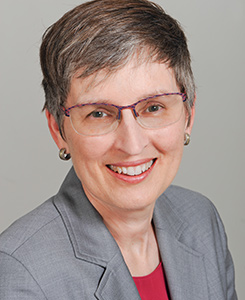
Gisèle Bourgeois-Law, MD, MEd, FRCSC
Clinical Professor, Department of Obstetrics and Gynecology, UBC
CHES-IMP Liaison, UBC
This work is important to medical education because…
As an increasing number of Canadian provinces implement Physician Practice Improvement (PPI) initiatives, the number of physicians who will be identified as needing some form of remediation will likely increase. While remediation in practice shares similarities with remediation in postgraduate training, one might also expect qualitative differences when an external agent removes an individual’s professional autonomy to a lesser or greater degree. We know that remediation in practice can entail significant logistical challenges. What we don’t know is how remediation, meant to be a positive process to support a physician in bringing their practice up to the expected standard, is actually experienced by those physicians undergoing remediation. Understanding the remediation process from the remediatee point of view might lead to better ways to support physicians, increased individual buy-in, and higher rates of both short-term achievement of learning/remediation objectives and long-term sustained practice change.
Paula Rowland, PhD
Exploring tensions in the clinical learning environment: A qualitative study of policies and practices related to trainees involved in safety events In academic teaching hospitals
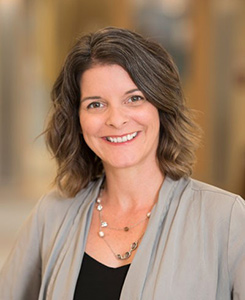
Paula Rowland, PhD
Scientist, Wilson Centre and Post MD, Faculty of Medicine University of Toronto and University Health Network
Assistant Professor, Department of Occupational Science and Occupational Therapy, Faculty of Medicine, University of Toronto
This work is important to medical education because…
Clinical learning environments (CLE) have a dual mandate: provide safe patient care and provide health professions education. Developing an understanding of the organization of CLEs will provide much needed insight into how CLEs might be positively influenced towards both better care and better learning. We argue that negotiations around “when things go wrong” reveal organizational dynamics that impact the CLE. In this study, we focus on how organizations negotiate policies around errors, accidents, and unexpected events. This will be a qualitative research project, exploring how policies and practices related to students and/or trainees involved in care events are negotiated, sustained, and/or resisted by (a) hospital-based stakeholders and (b) university-based stakeholders. Our objective is to develop a conceptual framework to help educators understand, assess, and negotiate these organizational dynamics. This framework will be relevant for all medical educators concerned with the CLE, including post graduate medical education and continuing professional development.
Jonathan Sherbino, BSc MD MEd FAcadMEd DRCPSC(Clin Ed)
Consultation or Crowd Sourcing?: Exploring the diagnostic accuracy of individual and group diagnosis
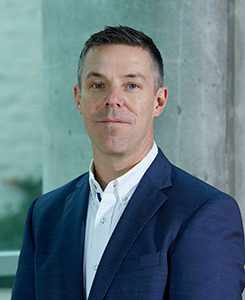
Jonathan Sherbino, BSc MD MEd FAcadMEd DRCPSC(Clin Ed)
Professor, Department of Medicine, McMaster University
Assistant Dean, McMaster Education Research, Innovation and Theory (MERIT) program
How can clinicians reduce diagnostic error?
This study is important because it will test the influence of collective intelligence (the wisdom of crowds) to improve diagnostic accuracy.
Sophie Soklaridis, PhD
Beyond “mini-me” and #MeToo: Building physician’s leadership capacity to support the success of people with diverse needs and experiences
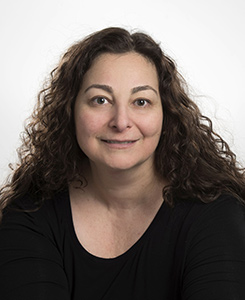
Sophie Soklaridis, PhD
Senior Scientist, The Centre for Addiction and Mental Health
Associate Professor, Departments of Psychiatry and Family and Community Medicine, University of Toronto
Scientist, Wilson Centre, University of Toronto, Faculty of Medicine and University Health Network
This work is important to medical education because mentorship is an essential component of career development. However, most individuals tend to mentor and advocate for the development of mentees who are most like them. As a result, women and other minority physicians have a difficult time entering the white male-dominated ranks of top hospital management and continue to occupy only a small portion of executive positions with the greatest power and authority. Physician leaders are not necessarily trained to consider approaches to gender and diversity to redress health inequities. The objectives of this research are to explore physicians’ perceived connections among leadership, mentorship and diversity; transform these experiences and what is known in the academic literature into an educational curriculum that engages physicians in complicated conversations that lead to transformative learning; and ensure an optimal learning experience for increasing physicians’ capacity to lead diverse healthcare teams.
Anneke van Enk, PhD
The Use of Previously Undocumented Data in Competence Committees of Competency-Based Medical Education Training Programs
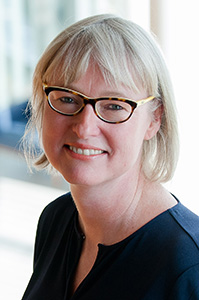
Anneke van Enk , PhD
Scientist, Centre for Health Education Scholarship, Faculty of Medicine, University of British Columbia
This work is important to medical education because…
Previously undocumented data (PUD) plays a potentially significant role in competence committee (CC) decision making, but we know little about its forms, uses, and management in deliberations. While CCs in some countries appear to permit the use of PUD, other countries discourage its use, perhaps on assumptions that PUD will distort assessment, and that the increased documentation called for by CBME will ultimately eliminate any need for it. Yet, documentation of clinical performance is limited, and we may not be able to rely on it exclusively. Moreover, there is evidence that PUD contributes to richer assessments. It appears worthwhile, then, to revisit its place in assessment, even as we acknowledge concerns about fairness, coherence, and transparency. Our analysis will help CCs to better understand the value and potential risks of PUD in defensible decision making and to craft sounder guidelines for whether, when, and how it might best be used.
2019
Sarah Burm, PhD
Non-Indigenous Medical educators and trainees Engagement with the Truth and Reconciliation’s Calls to Action: A Narrative Study

Sarah Burm, PhD
Assistant professor, Faculty of Medicine, Continuing Professional Development and Medical Education, Dalhousie University
Across Canada, faculties of medicine are operationalizing their response to the Truth and Reconciliation Commission’s (TRC) mandate and although considerable progress has been made, there is still so much work to be done. Medical schools have an obligation to ensure everyone across their faculty, Indigenous and non-Indigenous, are equipped and committed to fulfilling their social accountability mandates with respect to Indigenous health. However, to create a community of non-Indigenous advocates who can confidently and respectfully contribute to these efforts, we first need to understand the experiences of those currently involved in advancing Indigenous health initiatives and the ways they navigate their roles and responsibilities across medical education. This qualitative research project will explore the pathways taken by some non-Indigenous peoples engaging in activities whose stated aims include advancing the TRC’s Calls to Action around Indigenous health. We want to better understand how non-Indigenous faculty and trainees enter into and navigate the complexities of this work, including engagement in critically confronting their positionality and the impact this learning has had on their personal and professional identities. The results of this study will be relevant to all medical schools striving to engage meaningfully in reconciliatory efforts.
Samantha Halman, MD, FRCPC, MMED
Focus on faculty evaluation: informing continuing professional development in a meaningful way
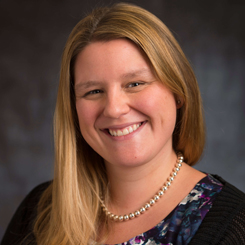
Samantha Halman, MD, FRCPC, MMED
Assistant professor of medicine, University of Ottawa General internist, Department of Medicine, The Ottawa Hospital
Rigorous assessments and constructive feedback about all aspects of performance should drive learning and professional development, but this may not be the case for faculty in independent practice. Although most evaluation processes focus on care provision and teaching abilities, much more is expected of clinical faculty. To be successful, they must also be excellent researchers, mentors, administrators and leaders; faculty receive limited, if any, formal and constructive feedback about these domains. While problematic for all faculty, for those who are prone to self-doubt, lack of meaningful evaluations and credible feedback may hinder their career advancement and impact wellness. We aim to explore faculty members’ perspectives about the role evaluations and feedback currently play in their professional development, and how they obtain the insights necessary for performance improvement across multiple professional activities. This will hopefully provide opportunities to render evaluations more meaningful and impactful to faculty in practice.
Aliya Kassam, BSc (Hons), MSc, PhD
A National Initiative to help ease the Transition from Medical School to Residency: The Learner Education Handover Pilot Project (LEaPP)

Aliya Kassam, BSc (Hons), MSc, PhD
Research lead, Office of Postgraduate Medical Education, and assistant professor, Department of Community Health Sciences, Cumming School of Medicine, University of Calgary
Current literature suggests that medical learners feel inadequately prepared for residency, particularly in terms of clinical experience, knowledge and skills. Faculty are often able to pinpoint where improvements are needed to help ease the transition; however, these are heavily based on technical deficits that need improvement and not in other competency domains. By receiving advance notice (post resident matching but pre-entry) of specific educational, personal or accommodation needs, residency programs can proactively begin to plan and Learner Education Handover (LEH) collaborate with incoming self-identified learners to achieve a more expeditious and effective learner program for them.
Sandra Monteiro, BSc, MD, PhD
Evaluating rapid exemplar processing to improve diagnostic expertise
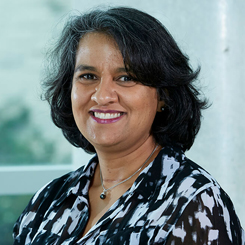
Sandra Monteiro, BSc, MD, PhD
Assistant professor, Department of Health Research Methods, Evidence and Impact, McMaster University Director, Research and Analysis, Touchstone Institute
Medicine is increasingly complex, with exposure to representative patient encounters occurring in an ad hoc manner. The proposed approach takes a systematic line to building efficiency into the system. Rapid exemplar learning serves as a theoretical approach to change the delivery of medical education that is largely unchanged for the last century. To date, the only way to acquire enough exemplars to develop expert-level performance is through years of formal medical school curricula followed by informal training through ‘seeing more patients.’ This study applies modern theories of human visual statistical learning to evaluate a more time efficient method for learning to categorize diagnostic images. We believe this approach can better prepare health professions’ trainees to apply the skill of medical diagnosis.
Hatem Salim, MD, FRCPC
Is there more to it than reading around the case? A mixed methods study of resident workplace preparation habits
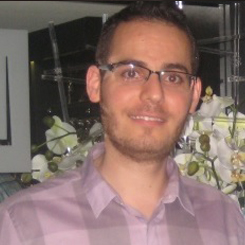
Hatem Salim, MD, FRCPC
Assistant professor, Division of General Internal Medicine, Department of Medicine Associate program director, Internal Medicine, Western University/ London Health Sciences Centre
Intuitively, it is believed that better preparation habits would make for better resident performance; however, there is a paucity of research that documents how residents prepare, let alone evidence to confirm a causal relationship. The results of this study are important as many programs are undertaking major educational change initiatives. Predominantly associated with the competency-based movement, programs are being asked to personalize learning without much in the way of guidance. Many programs struggle to figure out how best to help trainees prepare and learn in the workplace. Thus this study will fill this need not only from an academic perspective, it will also serve to support programs in being able to better identify preparation habits of trainees to customize learning activities and ensure continued progress.
Lynfa Stroud, MD, Med, FRCPC
How academic advisors and residents develop learning relationships and make meaning of assessment data over time
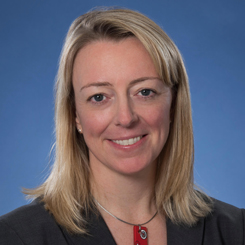
Lynfa Stroud, MD, Med, FRCPC
Associate Professor, Department of Medicine, University of Toronto Staff Physician, Division of General Internal Medicine, Sunnybrook Health Sciences Centre
Competence by Design (CBD) has increased the number and frequency of low-stakes, formative assessments during residency training. To help residents synthesize and use the greater amount of assessment data and feedback, the Royal College of Physicians & Surgeons of Canada has recommended ‘coaching over time’, leading many residency programs to create the Academic Advisor (AA) role, or similar coaching roles. However research has yet to focus on the experience and impact of this new role. This work aims to better understand how AAs and residents interpret assessment data and how they use the data together to plan learning trajectories, what language AAs use to document these encounters, and how both AAs and residents perceive their relationship over time. The outcomes of this study will further inform CBD implementation and provide a greater understanding of longitudinal coaching relationships in residency training.
2018
- Elif Bilgic, PhD
- Tristen Gilchrist, MD, FRCPC (MHPE Student, Maastricht University)
- Anna MacLeod, PhD
- Tracy Moniz, PhD
- Heather Waters, MD, CCFP, FCFP
- Timothy J. Wood, PhD
2017
- Ryan Brydges, PhD and Jeffrey J.H. Cheung, PhD(c)
- Vicki Leblanc, PhD
- Carmen L. Mueller, BSc(H) MD FRCSC MEd FACS
- Geoffrey Norman, PhD
- Nha Voduc, MD, FRCPC